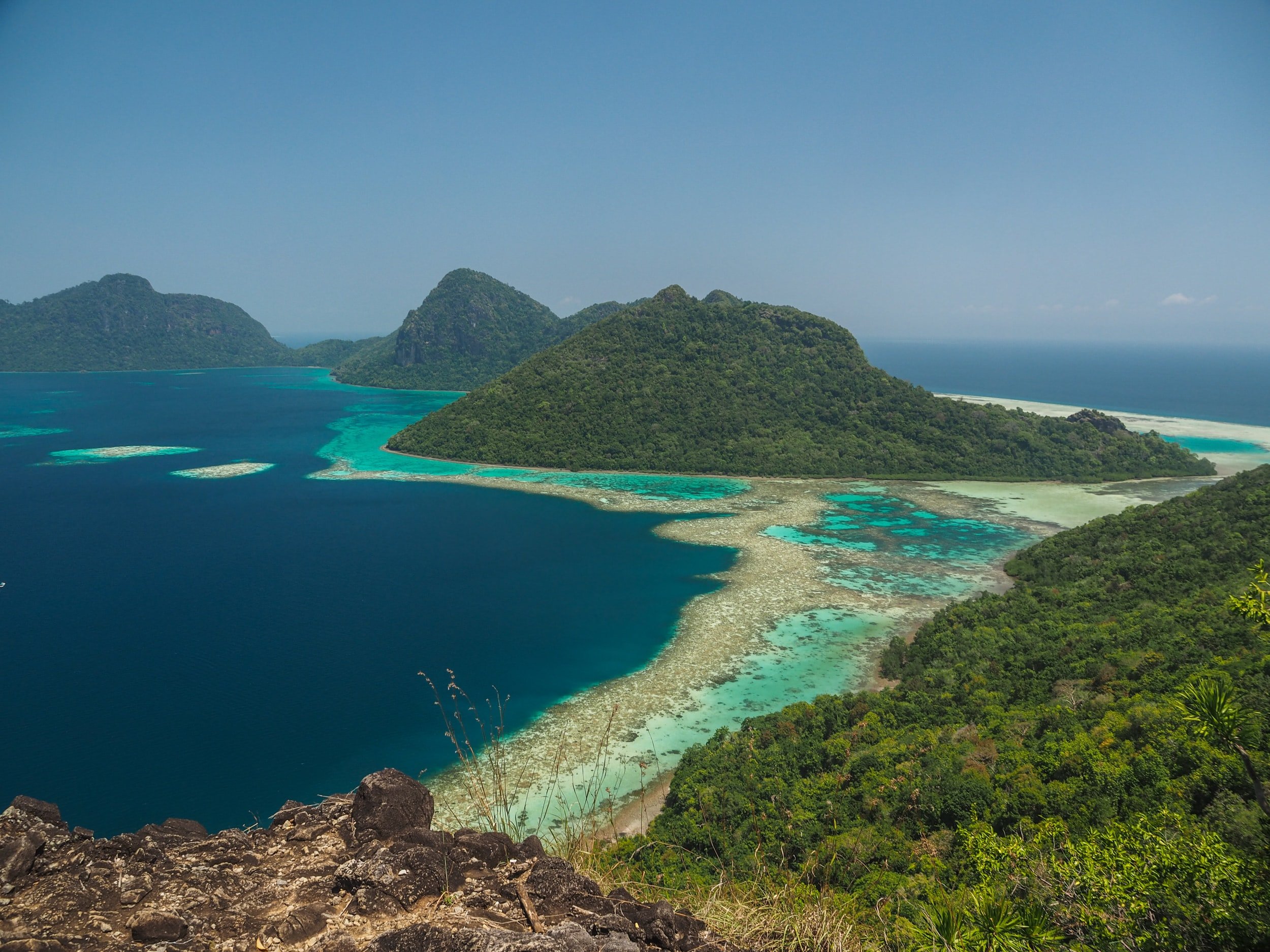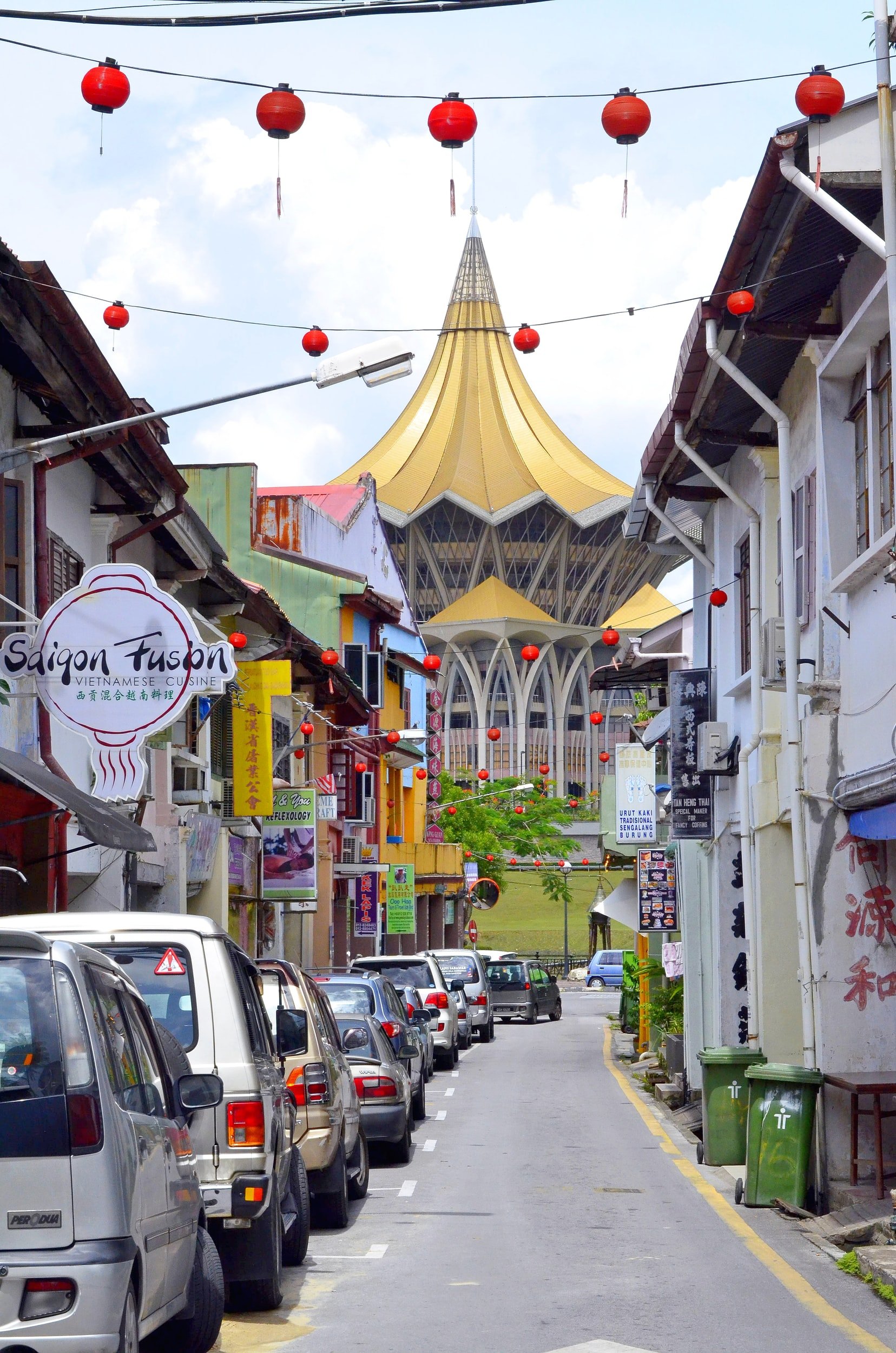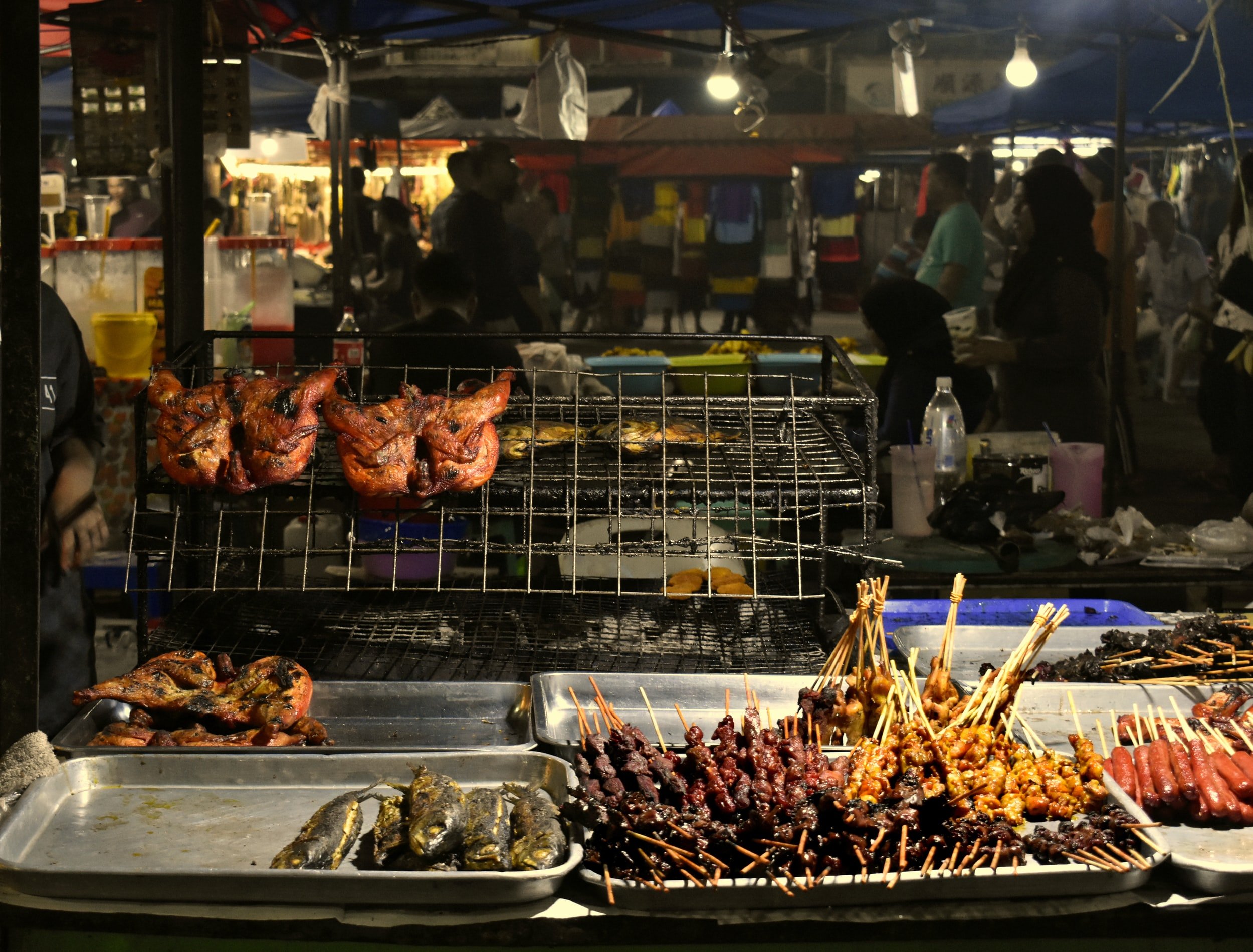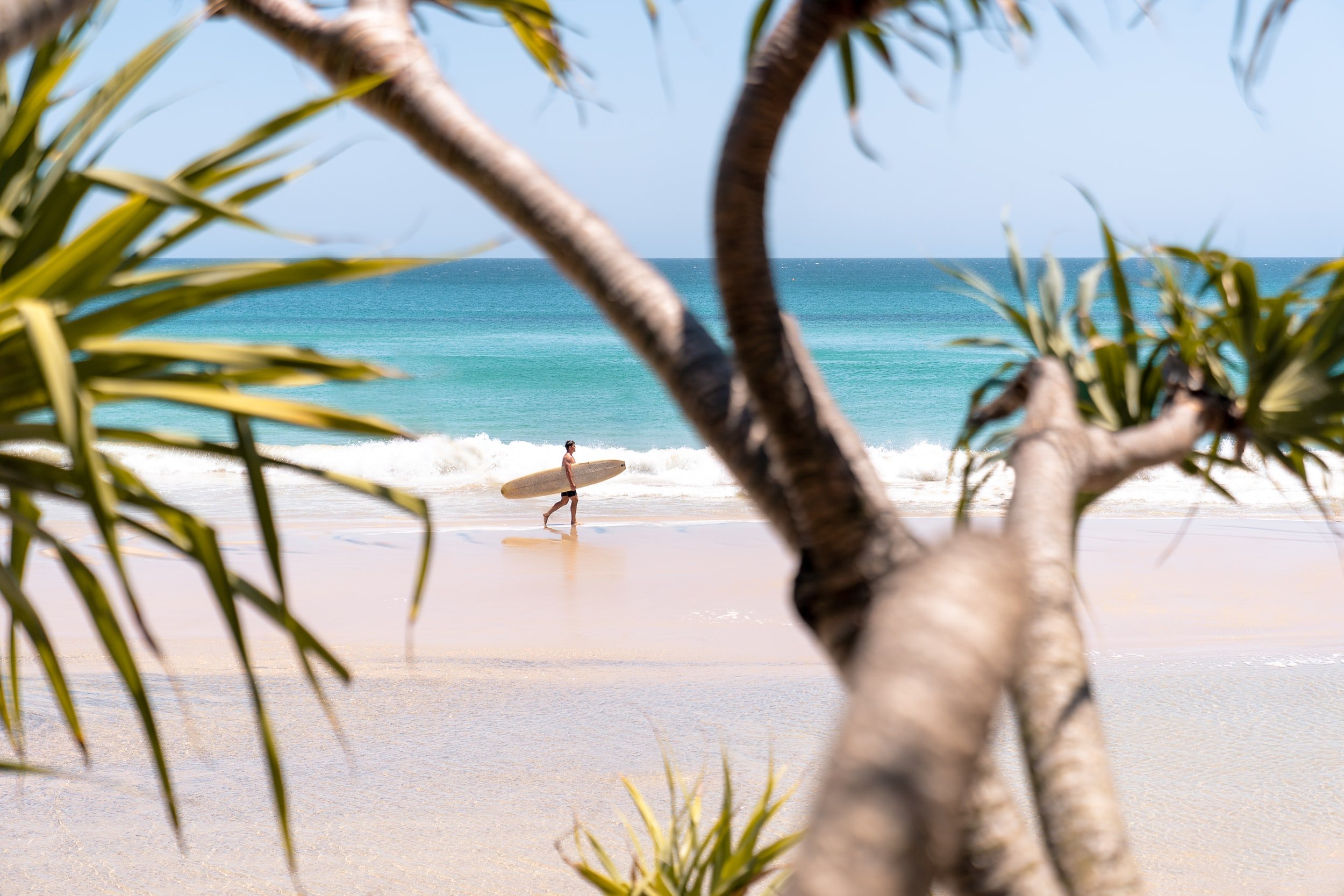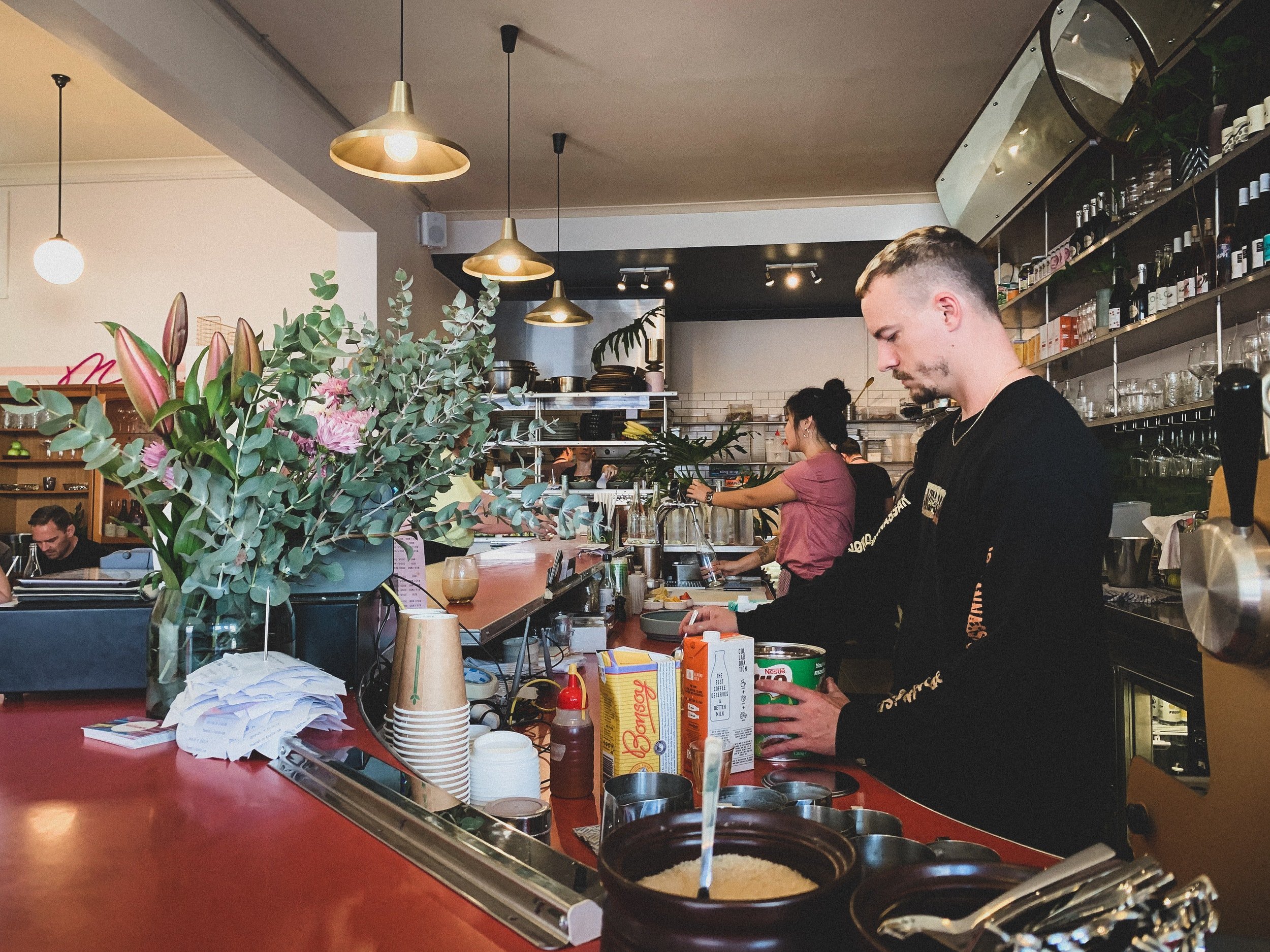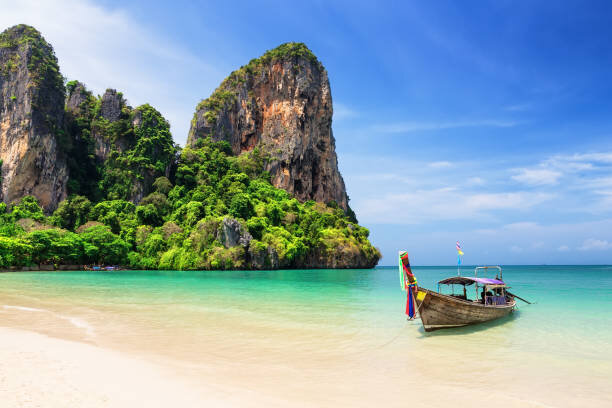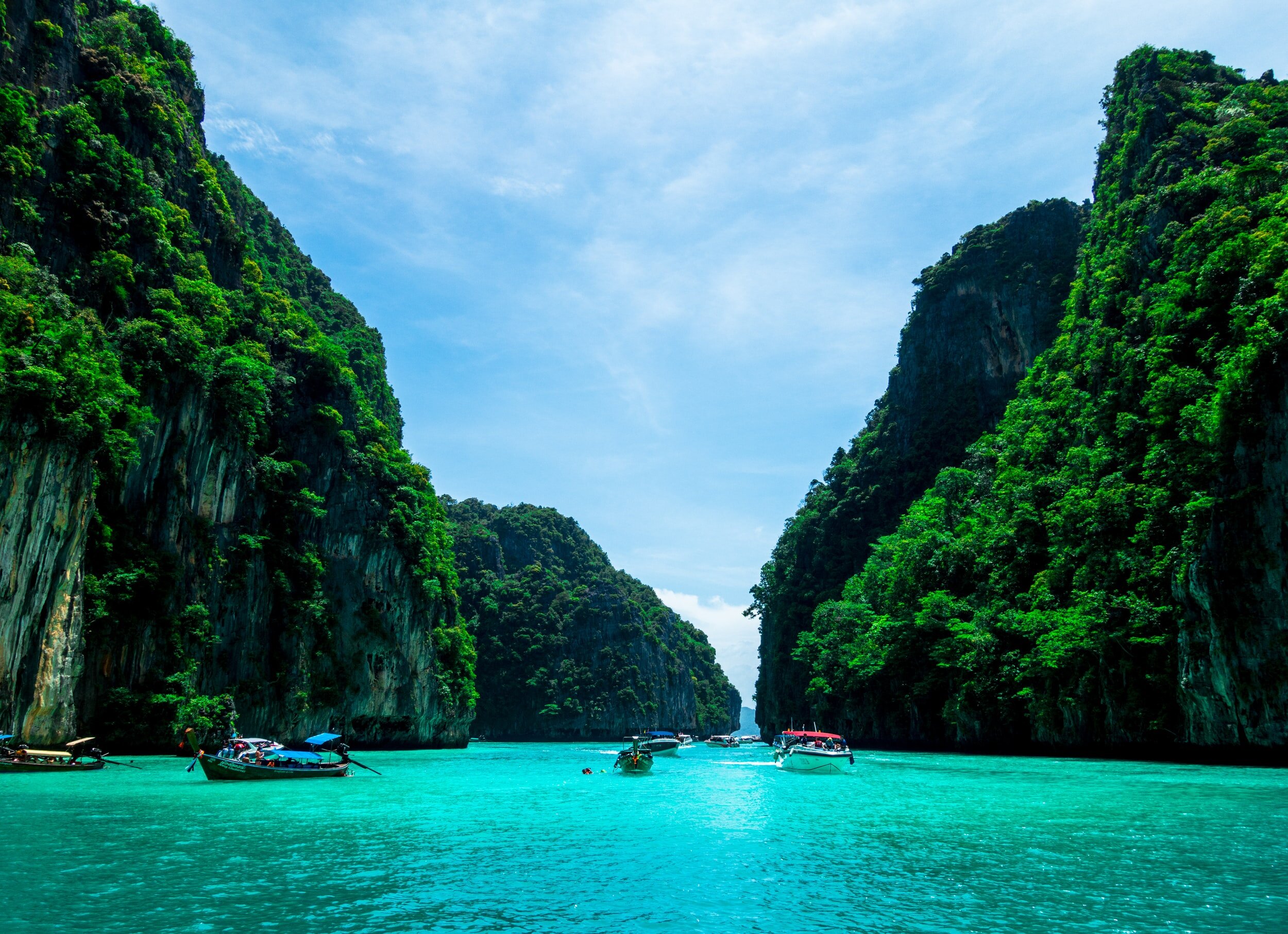Tourism in Malaysia makes major waves in April as it re-opens to the world
Tourism in Malaysia is making major waves in April as it re-opens to the world.
This is a blog by Trove Associate Jane Noela-Braimah.
Malaysia opened its borders to international travelers and returning Malaysians alike in March 2022, and since then, the nation has been loosening restrictions and going full force on global promotional events.
On April 1st 2022, the Southeast Asian country started the transition into the endemic phase of COVID-19, completely relaxing all protocols for the first time since its stringent lockdown and restrictive procedures after two years. At the time, to curb the rise of COVID-19 in the country, foreign travelers were barred from entry, while returning nationals, permanent residents and select diplomats went through quarantine and other extensive measures before returning to their (home) country.
From April 10th to 12th the Malaysia Tourism Promotion Board participated in Borsa Internazionale del Turismo, Milan Italy. Led by Mohamad Libra Lee Haniff, Director of Tourism Malaysia in Paris, the country was promoted as an ideal covid-compliant holiday destination. Information on traveling to Malaysia was made to travel partners and holiday tourists alike, with hopes of establishing strong business networking opportunities. Libra saw the BIT as an ideal marketing location for Malaysia, and with over 40,000 guests in attendance, the opportunities are not overstated.
In an interview that followed days after the opening of national borders, vice president Ganneesh Ramaa of the Malaysian Association of Tour and Travel Agents was confident in Malaysia’s direction towards international tourism, pointing to leading examples in Europe and other Asian countries who made similar moves already. He however insisted that speculations on the recovery rate of Malaysia’s tourist market cannot be made this early, with a note made to the global impact of the Russia-Ukraine war as a contributing factor to this uncertainty. China’s slow recovery in its tourism market also plays a role in this uncertainty as the nation is one of Malaysia’s major contributors.
Still, the government and organizations in the industry remain hopeful about Malaysia’s economic future with the opening of its borders, given the statements from the Ministry of Tourism, Arts and Culture. Tourism Malaysia is set to globally launch the “Malaysia, Truly Asia” campaign again following the opening of the borders.At the launch of its Strategic & Marketing Plan for 2022 - 2026, Minister Datuk Seri Nancy Shukrie stated that the Government is projecting at least two million tourists. With priorities focused on six key factors of domestic tourism and promotions, international tourism recovery, digital adoption, innovation, health and safety, Malaysia’s players in travel and tourism prepare and anticipate the increase of a market that had plunged significantly in the year 2020.
The events and campaigns of April, organized by Tourism Malaysia and the Ministry of Tourism,, are proving promising. In line with the Strategic & Marketing Plan for 2022 - 2026, more is expected to come from Malaysia Ministry of Tourism and the country’s industry players.
Learn more about our Digital Marketing and destination marketing work here.
Australia’s Campaign Is Full Steam Ahead as the Nation Re-opens
Australia’s tourism re-opening comes at a great time and lines up with a multi-national campaign focused on igniting the visitor market.
The following article is by Trove Associate Olivia Silverman-Franklin.
Did you happen to catch a 30-second ad for Australia this past Superbowl weekend? “Don’t Go Small. Go Australia” Is the latest marketing campaign for the country to garner the interests of those living in the United States and the United Kingdom. In addition, “The Come and Say G’Day - Don’t Go Small. Go Australia” campaign will be marketed through social media platforms, TV, and print ads in Germany, Italy, and France.
The campaign featured some iconic and picturesque scenery like the Northern Territory, Sydney Harbor, and the Great Barrier Reef. “We have chosen locations and activities to reflect the wide diversity of tourism experiences Australia has to offer. We also considered the popular destinations and cities that have been impacted the most by the pandemic and put them in the spotlight”, said Dan Tehan, Minister of Trade, Tourism, and Investment. Australia’s focus to highlight places most affected by the pandemic is a step in the right direction.
On March 19, 2020, Australia closed its borders and initiated a lockdown for all citizens. Melbourne held about six lockdowns, totaling 262 days, the longest of any city in the world during the pandemic. In November 2021, Australia first started allowing its citizens to leave; they gradually allowed workers and foreign exchange students to enter strictly for studies. The last phase of reopening was this past Monday, February 21st, 2022, for all leisure travel for international visitors to resume. This is huge news for a country that has been closed off - and one of the tourism powerhouses in the world
The first installment of this campaign comes as COVID infections slowly decrease and vaccination roll out in most countries have reached third dose status. Australia is still taking significant caution by opening again to international tourists. Tourists will need to be fully vaccinated, hold a valid Australian visa, have a completed travel declaration, and a negative RAT within 24 hours of departure in addition to a negative PCR within 72 hours of release. This may seem a lot to some travelers, but hopefully, these requirements could be reversed by the next installment of this campaign, and Australia will soon reap the benefits of this well-thought-out campaign.
Could Australia influence other countries for future post COVID marketing tourism marketing? That will depend on the data, branding strategy, visuals and social content underpinning their efforts. You can contact us here to start planning your destination campaign.
Trove is excited to announce that we are TravelTech’s “Leading Global Innovator”
Trove has been chosen as TravelTech's newest Leading Global Innovator for its work in digital and tourism development.
Trove is excited to share that we have been selected as TravelTech’s newest “Leading Global Innovator” and that we will be presenting at the TravelTech Show from September 14-15th!
Throughout the 2 day period at our booth we will be connecting with leading solution providers, discovering the latest technological innovations that drive digital transformation. Our team is looking forward to meeting fellow pioneers in the travel space and presenting our digital strategy approach to creating tourism "troves". We will be demonstrating how Trove works to make a positive difference through our tourism development work. We are so excited to join fellow thought leaders in the digital tourism space!
Information on TravelTech Show is below:
Travel Technology Europe has been running for 18 years as a face-to-face exhibition based in various venues around London, UK. Over this time, the event has established a niche platform to provide European marketing, digital and commercial technology specialists in the travel industry with the relevant software to enhance business efficiency and improve business performance. In 2019, Travel Technology Europe was acquired by Northstar Media and became part of the world renowned Northstar Travel Group, which includes leading international media brands Phocuswright, Phocuswire, Travel Weekly and Web in Travel. In 2020, Travel Technology Europe was powered by Phocuswright and this partnership and input from the Phocuswright team contributed to one of the most successful events to-date, despite the start of a global pandemic.
“Phuket Sandbox” program serves as experiment for tourism industry
Phuket, Thailand’s new Sandbox program is an experiment for the tourism industry.
This blog was written by Trove Associate, Maeve.
Last week, Thailand launched the “Phuket Sandbox” program, allowing fully vaccinated travelers from 63 low to medium-risk countries to visit Phuket and travel freely within the island. Among other minor restrictions, the plan requires travelers to obtain a negative PCR test 72 hours before departure and to stay at a Sandbox Hotel (SHA+ certified with over 70 percent of staff vaccinated.) After these initial 14 days, visitors will also be allowed to travel freely throughout the rest of Thailand. The inauguration of this plan aligned with a surge in Covid cases to a record high for Thailand as a whole. So, while Phuket has managed to vaccinate a high percentage of their island (84 percent of the population have received their first vaccine dose and 67 percent have received both doses as of July 5th) and keep covid numbers low, the Sandbox program serves as somewhat of an experiment in the tourism industry.
Although flights are currently limited, this is very exciting news for those who have been anxiously awaiting a trip to the beautiful beaches of Phuket. Not to mention, this is great news for the people of the island. Pre-pandemic, the tourism sector accounted for 95 percent of Phuket’s economy, but only 20 percent of Thailand’s as a whole. According to the Tourism Authority of Thailand, in the first five days of the launch, the island saw 32 inbound flights and close to 1,900 tourists. In the month of July, it is expected to rise to 426 inbound flights to the island and over 11,800 travelers. By the end of September, Phuket will see around 100,000 tourists.
Following the reboot of Phuket’s tourism industry, Thai authorities are now looking into the future to hopefully reopen the Surat Thai province by July 15th. This means that the popular tourist spot Samui Island will be accessible to travelers under similar, relatively lenient, circumstances. From September 1st onward, travelers can expect to see the cities of Krabi, Chiang Mai, and Pattaya start opening up - followed by the Thai capital of Bangkok opening on October 1st.
Visit our Instagram account @trovetourism to continue to stay up to date on what countries are beginning to reopen to the world as well as the latest tourism and travel updates.
Tourism Rehabilitation Workshop highlights need for partnerships and digital payments in Cambodia’s recovery
Partnerships and digital payments are key to Cambodian tourism recovery. The recent cooperative workshop highlighted trends, challenges, and opportunities for the tourism sector for now and post-COVID.
Trove’s Visitor Experience Design team reports from the Cambodian workshop with major experts from Cambodia and the wider region.
The cross-sector workshop on July 1st was a turning point for Cambodian tourism as it united major stakeholders to discuss some of the most important trends and learning points from pre COVID and during COVID. Present on the call were influential members of the Ministry of Tourism, including H.E. Thong Rathasak and Mr. CHOUB Ratana, as well as members of the private sector, donor funds, and other regional and domestic government agencies.
Panelists for the first part of the workshop on Cambodian tourism recovery.
The first part of the workshop also highlighted the trends in Cambodia around private and public stakeholders working together during COVID-19 to recover socially and economically from the financial impact of the pandemic.
A few strategies highlighted to rebuilding tourism include cross-border tourism cooperation (as regional tourism will be the new trend in 2021 and 2022), a regional tourism board, and communications across six member governments. H.E. Thong Rathasak highlighted a high rate of vaccination across the Cambodian population as well as the nation’s recovery plan, which includes an inbound vaccinated travelers policy which is currently in progress. The first workshop also set up the role of the private sector in investing in technologies to catalyze tourism development (for instance, the Wonderpass solution).
As an extention of the first half of the webinar, the second half of the webinar focused on the light at the end of the tunnel and the potential of digital payment technology for catalyzing recovery. It is time for "new solutions", stated Gavin Bell of the AFD who served as MC. The "track and trace" technology has shown major improvements for contact tracing through QR codes in Cambodia thus far, and contactless payments are more relevant now more than ever. In addition to Mr. Bell, present in this panel were H.E. Thong Rathasak (Director General of Tourism Development and International Cooperation of Cambodia), Mr. Jeff Laflamma (Haystack Asia), Mr. Ray Cabrera (Acting Director of Merchant Management of Wing Bank), Lok Chumteay Chea Ratha (CEO and Founder of Khmun eShop), Lok Chumteav Chhay Sivlin (President of the Cambodian Association of Travel Agents - CATA), H.E. AING Sovannroath (Executive Director of Cambodia 4.0 Center), and Mr. Thourn Sinan (President of the Pacific Asia Travel Association, Cambodia Chapter).
The second part of the workshop on the advent of digital payments in the tourism sector in Cambodia.
According to H.E. Sovvanroath using technology to gain productivity is a major factor to tourism growth post-COVID. Tourism is the #1 method of bringing more and more economic development in the country. Tourism will be a key factor to the recovery of the Cambodian economic sector in the near future as well. We need to incorporate new elements in the tourism development in order to make that happen, such as contactless products.
COVID-19 has affected the local spending and shopping behaviors, as well as the e-commerce platforms that are local to Cambodia. COVID-19 has made many local businesses shut down. Khmun, as an example, is an ecommerce marketplace and payment gateway. Innovative approaches to shopping have supported Cambodia through lockdowns and will continue to support Cambodia's tourism recovery post-COVID. In addition, through Wing Bank and other bank partners, QR and contactless payments are provided for merchant partners. A merchant solution is all-in-one and can cater to various segmentation to pay using QR codes at those outlets. Merchants are able to accept payments from tourists in a variety of languages and messaging platforms. Wing Bank's merchant application, for example, was launched recently to try to drive less cash transactions. Currently, the tourist sector has been affected so Wing Bank's solution is working to be ready when international tourism opens back up in Cambodia. Preparing for the future is critical, especially on a digital perspective.
The tourism industry also has realized the criticality of contactless payments in the bounce-back of the tourism and hospitality sector. CATA stressed that the tourism sector has a responsibility to encourage customers and work with operators to stress e-payments in transactions. Online payment platforms are not a problem, said PATA. But a major area for improvement is payment platforms in the tourism sector specifically, where bank transfers between countries are difficult. Other challenges include working with multiple vendors, rules and regulations on the supplier side, and dealing with out of stock suppliers.
Haystack Asia, the creator of Wonderpass, underscored the importance of digital payments in the tourism sector. Wonderpass is a wristband technology that allows payments, attractions, and a marketplace that is able to provide safety to travelers while providing data to the industry. Wonderpass integrates with tourism products and is fully mobile compatible.
As H.E. Sovvanroath stated at the end of the event, as Cambodia continues to use digital payments in the tourism sector, there is potential to serve as an example for the rest of the world on how to use technology to help tour operators, travel agencies, hotels, restaurants, and other tourism products bounce back in a safe and effective way. The event demonstrated that there is a lot of work to do but that in Cambodia, innovation and public-private partnerships are key to progress.
At Trove, our Strategic Planning and Visitor Experience Design teams work closely with tourism boards to integrate new technologies and streamline planning for during COVID and post-COVID. Our fundamental mission is to not let technology sit on the shelf and to incorporate the right marketing campaigns, branding strategies, online and social strategies to get technology in the minds of the highest value users and secure long-term adaptation of new technology. Learn more here.
Cambodia’s tourism roadmap and Siem Reap’s master plan for tourism approved
Cambodia’s new strategic plans make great progress in the development of the tourism industry.
Cambodia has just announced their tourism roadmap for 2021-2025, a plan which will promote both tourism marketing in the advent of the COVID-19 pandemic as well as sustainable tourism development. In addition, the Siem Reap tourism development plan for 2021-2035 was approved by the Ministry of Tourism.
These are two major moves that will support the development and bounce back of Cambodia’s tourism industry. The recovery roadmap is segmented in three stages:
Resilience and Restart: Crisis management in the New Normal and recovery preparation in 2021
Recovery: Rebuilding of Cambodia’s tourism industry after the COVID-19 crisis in 2022-2023
Relaunch: Full rebound of tourism in 2024-2015
Two fundamental strategic accomplishments like these mark major progress by Cambodia in achieving their post COVID-19 goals. More and more destinations around the world are re-assessing their tourism master plans and creating new plans for crisis management, public health, hygiene and community development. These are important areas of focus as destinations continue to plan for the future.
Also important for Cambodia in ensuring adequate follow through after the build of these documents will be the implementation of these strategies. There are a few critical questions that the Ministry of Tourism will need to answer:
What will the governance process look like for the implementation of these tourism strategies?
What are associated marketing campaigns that must be implemented to propel not only Siem Reap but the rest of the region?
How will the recovery plan support development of other areas in Cambodia, including the 4K provinces (Coastal provinces)?
What will on-going training of field offices and tour operators look like?
How will the Ministry of Tourism accurately gauge public sentiment both in and out of Cambodia in regards to comfortability around travel and Cambodia as a tourism destination overall?
Cambodia has ambitious goals for tourism development in the coming months and years and we look forward to seeing increased tourism to Cambodia to allow for gradual economic growth, community development and cultural exchange in the Kingdom of Wonder.
Learn more about Trove’s Strategic Planning practice here.
Israel begins new uni-lateral travel deals with Greece and Cyprus
Israel has recently signed tourism deals with two of its Mediterranean neighbors, Greece and Cyprus. The deals allow vaccinated tourists of Greece and Cyprus to travel freely to Israel, and vice versa, without having to quarantine. The lack of a self-isolation period is massive and provides a glimmer of hope that a sense of normalcy is on the horizon.
Israel has been leading the world in its aggressive COVID vaccination plan. 4 million of its 9 million residents have already received the first of the two Pfizer-BioNTech shots within a few short months. The country is hoping to have everyone over the age of 16 vaccinated by the end of March. Israel’s vaccination campaign has been an impressive benchmark for the rest for the world to follow, but Israel is also leading the world in innovative bilateral tourism deals.
Israel has recently signed tourism deals with two of its Mediterranean neighbors, Greece and Cyprus. The deals allow vaccinated tourists of Greece and Cyprus to travel freely to Israel, and vice versa, without having to quarantine. The lack of a self-isolation period is massive and provides a glimmer of hope that a sense of normalcy is on the horizon.
The countries will be working together to reopen their economies to tourism as their vaccination efforts are underway and cases of COVID-19 continue to decline. President Nicos Anastasiades is also hoping to work with Israel’s Ichilov hospital on a new COVID-19 treatment and said that Cyprus would participate in clinical trials.
Israel is also said to be negotiating similar agreements with the United Kingdom, Estonia, Romania, Serbia, Georgia, and Seychelles. With historic peace deals made recently with the AUE, Bahrain, and Morocco in recent months, Israel could also look to negotiate similar tourism deals with these countries as well.
The deals are a rare win-win scenario for all parties involved. Tourists who have been patient in wanting to travel over the past year can now do so safely and without the need to self-isolate. Countries who have experienced economic hardships as a result of the pandemic can aid each other’s tourism industries by satisfying all this pent-up demand.
These bilateral tourism deals also highlight the confidence in the effectiveness of the Pfizer vaccine despite the emergence of new global variants. Early data in Israel has shown the Pfizer vaccine to be over 95% effective after both doses and experts are cautiously optimistic about Israel’s vaccine progress. US infectious disease expert Dr. Fauci said, “Israel has a remarkable diminution of cases associated with the efficacy of their vaccine.” The effectiveness of the vaccine has allowed Israel to start easing lockdown restrictions for those who have been fully immunized.
The only concern that remains is how other countries can hope to keep pace with Israel in vaccinating their populations. Israel has been so far ahead of most countries that they may have to wait for others to catch up with their vaccine efforts. It seems that the only thing holding Israel’s complete return to normalcy back is the slow pace of other nations in administering the COVID-19 vaccine.
As Israel, Cyprus, and Greece begin to implement these tourism agreements, it is critical to develop solid communications and messaging that underscores the safety in this tourist circuit. In addition, closely monitoring tourist sentiment online through sentiment analysis tools will allow for all three tourism authorities to track tourist feedback at a local, regional or national level as well as to develop new visitor standards. At Trove, our strategic planning and online marketing & social media offerings provide solid footing for any evolving destination looking for help implementing new policy or strategy.
- For more news, contact the Trove Team
“The Multiplier Effect” in Travel and Tourism - WTTC
According to the World Travel & Tourism Council and the nonprofit Social Progress Imperative, reinstating international travel and tourism is a major driver in augmenting social progress in the advent of the COVID-19 pandemic.
Travel and tourism is signaled to be a much more significant driver of community growth than other economic factors (infrastructure, energy, etc). To illustrate, between 2011-2019, Southeast Asia noted the fastest annual growth rate in travel and tourism GDP per capita at 6.7 % compared to the region's 3.7 % overall economic growth. This data additionally puts the spotlight on jobs within the travel and tourism sector. One job is typically created for approximately every 34 international visitors to a location. However, the research indicates that there is a more direct impact on regions in Africa, Asia-Pacific, and the Middle East, where it may take as few as 11 to 24 international visitors to produce one job.
The research demonstrates the tremendous economic impact to the global economy due to the severe cuts in international travel, largely worsened by the “multiple” associated with tourism job creation. Based on current economic forecasting, 174 million travel and tourism jobs were affected. However, the impact was not the same across the board, as travel and tourism is a sector which impacts across all socio-economic backgrounds, where employed people in the sector are composed of individuals across age, gender and ethnicity groups, with almost 54 percent of whom are women and up to 30 percent youths."
This “multiplier” effect is critical to how travel authorities, destination marketing organizations, tourism development consulting firms and tourism boards should approach tourism development, as there there is an even more pressing need to come together locally, regionally and internationally to assess the economic impact related to the pandemic, develop master plans, new marketing campaigns, and develop new initiatives to begin to recover. In addition, as small and medium sized enterprises - not only limited to the hospitality sector but beyond - were often the hardest hit economically, a key factor in tourism development globally must include direct involvement of business owners.
Welcome to Trove!
Welcome to Trove Tourism Development Advisors! Trove is a tourism development consulting and destination marketing agency focused on holistically helping a destination stand-out and attract visitors. Learn more about what we do.
We are excited to launch Trove, the first of its kind consulting and marketing agency focused on bringing the best of business, technology and marketing to destinations. Tourism is posed to come back stronger than ever, and we are excited to work with you to build out your plans and come back to market.
- The Trove Team



